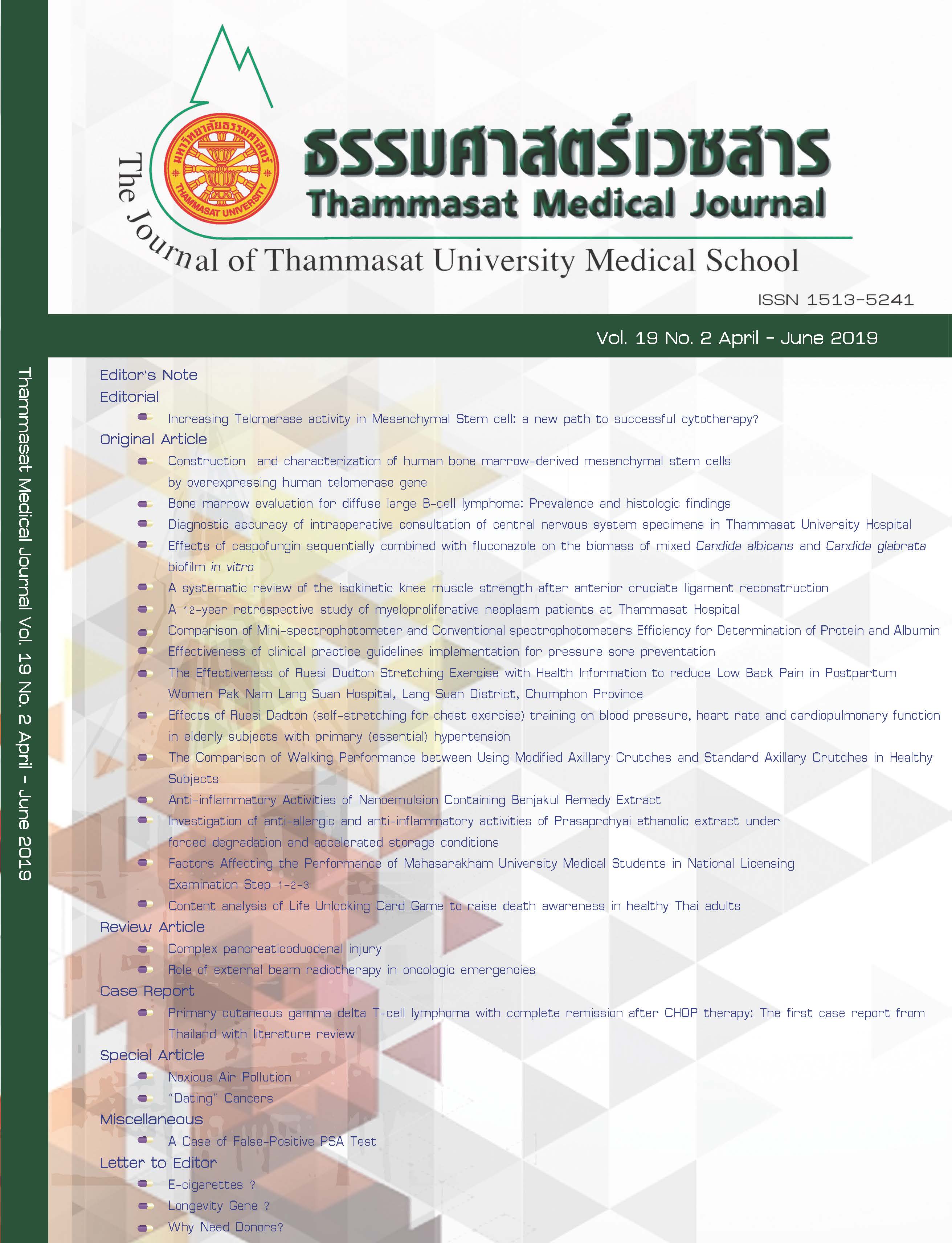Effects of Ruesi Dadton (self-stretching for chest exercise) training on blood pressure, heart rate and cardiopulmonary function in elderly subjects with primary (essential) hypertension
Keywords:
Ruesi Dadton, self-stretching for chest exercise, hypertension, blood pressure, heart rate, 6-minute walk test (6MWT), older personAbstract
Introduction: Controlled blood pressure can contribute to reduce mortality rate and serious complications. Thai hermit exercise (self-stretching for chest exercise) programs (30 minutes per session, 3 times per week for 4 weeks) for healthy Thais 50 to 90 years of age revealed that after 4 weeks, post-test group had significantly decrease (p < 0.05) in heart rate, systolic blood pressure and diastolic blood pressure compared to pre-test group. Therefore, this study aims to evaluate effect of Ruesi Dadton (self-stretching for chest exercise) training on blood pressure, heart rate and cardiopulmonary function among older persons with primary (essential) hypertension.
Method: A pre-experimental clinical research study was designed. Subjects included twenty-three with primary hypertension, aged 60 years or over. Exercise programs were approximately 30 minutes per session by a well-trained instructor, 3 times per week for 4 weeks. Before and after exercise, subjects were assessed for 6-minute walk test, fatigue score, heart rate and blood pressure. Significant difference level was set at 0.05 level.
Result: The findings revealed that after 4 weeks, post-test group had significantly decrease (p < 0.001, 0.001, 0.05 and 0.01 respectively) in heart rate, systolic and diastolic blood pressure and fatigue score compared to pre-test group. Post-test group showed significantly increase (p < 0.001) in 6-minute walk test compared with pre-test group.
Conclusion: Ruesi Dadton (self-stretching for chest exercise) training for 4 weeks had greater positive effects on decreasing heart rate and improving blood pressure and cardiopulmonary function for the elderly with primary (essential) hypertension. These findings indicate that Ruesi Dadton (self-stretching for chest exercise) training may be a non-pharmacological strategy for the control of blood pressure in the elderly.


